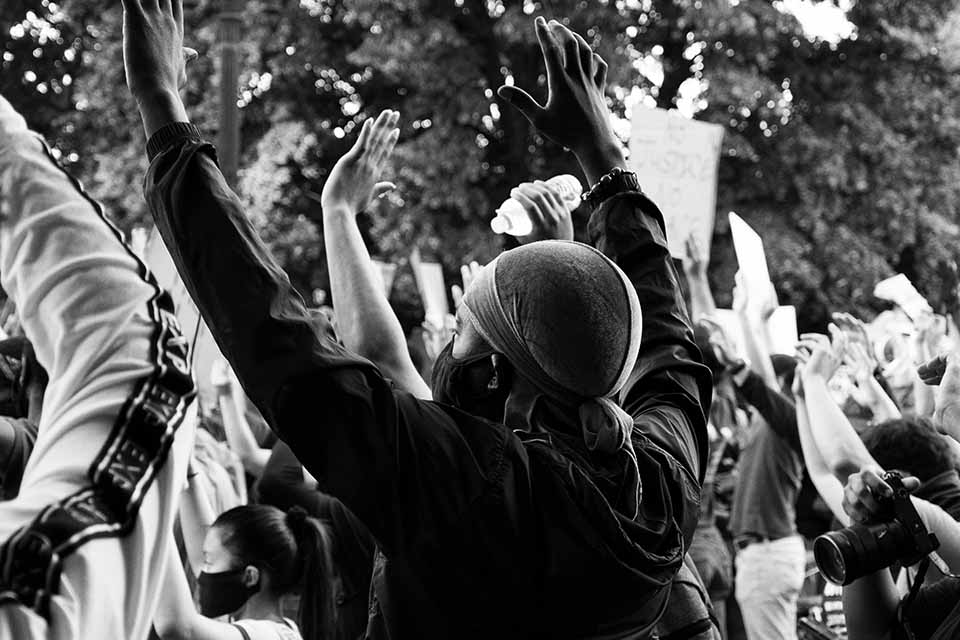Series editor’s note: Kwame Dawes’s poem is a powerful piece to start off the Black Voices series, and one that fits perfectly into the outrage of the most recent uprisings in the aftermath of George Floyd’s senseless death. At its fulcrum, it begins with an offhand comment from an unnamed Midwestern woman, who says, perhaps it is true, that for us to live so well, / some of them had to die, and though at first glance this may sound like a microaggression, in the expert hands of Dawes, it is churned over and over again, until it unveils the same reasons that have been used to justify racial injustice for so long, so deeply engrained in the white mind, so intertwined with a management of ethics, as it were. And it’s the particular tone with which Dawes portrays the incident that leads us to believe, to finally see the horror in such a seemingly innocent comment, but he is not whispering this poem as if it’s a secret for us to hold. It is a weapon of truth, and as such, we must carry it, and wield it wherever we go. – Mahtem Shiferraw
Before the Riot
by Kwame Dawes
But someone will have to pay
for all the innocent blood . . .
– Bob Marley, “We and Dem”
On the dreary trudge—the frontier begins. A hundred years later,
almost two, a woman says in the way of appeasement,
“Perhaps it is true, that for us to live so well,
some of them had to die . . . ?” The question suggested
by the nervous lift in inflection at the end of phrase—
and who is this “us” who have lived so well, who are living
so well; and how well—so that there is a peculiar
justification, a terrible logic, and it is a haunting
confession buried deep inside the book, though, in truth,
there is no question there. This is its own duplicity, this questioning,
this effortless way of speaking the tragic: there has been blood,
so much blood, and the rituals of bludgeoning,
of rust-tanned white men, clichéd westerners, hunters,
the stereotypes, the killers of vermin rabbits
under-wheel of trucks, the people she knows intimately,
like a daughter knows her father, knows her brothers,
knows the scent of Scotch on her grandfather’s breath;
the comfort of their manliness, stoic as stone, they will kill,
as easily as threaten even the softer bodies of their women—
it is a logical equation, a management of ethics,
and who are the dead, the slaughtered and the erased?
Tribes and tribes, whose faces I do not know,
though I know that the logic of this pragmatism—
this expiation of guilt, but the embrace of guilt,
as a kind of penance, is familiar, and the faces of those
bloodshot eyes, skins chalky with deprivation, the weary look
of slaves, those faces are as familiar as the panting bodies
of the football team strewn on the wide grass, undressed
in the heat, sweating, bodies broken after pleasure—the familiar look
of black bodies coffered by desire and violence, familiar as this—
and that saying, that Darwinian logic: “Perhaps it is true,
that for us to live so well, some of them had to die . . . ?”
offered in the soft voice of a Midwestern woman,
who never rushes her words, who carries in her throat
the secret to receiving mercy, a kind of forgiveness,
an expiation of guilt, who we count among those
in whose mouths ice couldn’t melt; mouths of tender
duplicity—perhaps, perhaps for us to live
as we do, and by this, I mean we who contemplate
anger and bombs, and chants, today, perhaps,
it’s true that someone will have to pay, as we say.
